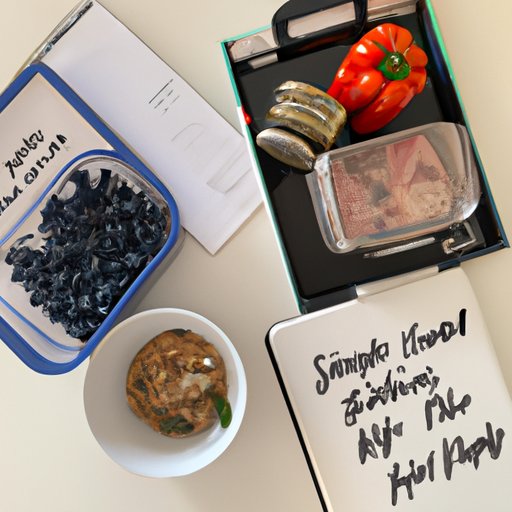Introduction
During the current pandemic, many of us are stuck at home and trying to make the best of a difficult situation. One thing we can do is focus on our health and wellness, which includes paying attention to our diets. Eating well is an important part of staying healthy, and it’s easier than ever to make healthier choices while in quarantine. Here are some tips for eating better during this time.
Cooking with Whole Foods
One of the best ways to improve your diet is to switch to cooking with fresh, unprocessed ingredients. This means avoiding canned and frozen foods as much as possible, since these often contain added sugar, salt, and preservatives. Instead, opt for fresh fruits, vegetables, lean proteins, and whole grains. Try to buy organic whenever possible, or look for local farms that offer delivery or pickup services.
Some examples of healthy foods to include in your meals are leafy greens like spinach, kale, and collard greens; cruciferous vegetables like broccoli, cauliflower, and Brussels sprouts; legumes such as lentils, beans, and chickpeas; nuts and seeds; and heart-healthy whole grains like quinoa, brown rice, and oats.
Meal Prep
Planning and preparing meals ahead of time can help make it easier to stick to healthy eating habits. It takes some organization and dedication, but it’s worth it in the long run. When you meal prep, you can shop for groceries in bulk and prepare several meals at once, which saves time and money. Plus, having food ready to go makes it less likely that you’ll reach for unhealthy snacks when you’re hungry.
If you’re new to meal prep, start small by making one meal at a time. Choose meals that have similar ingredients so you can use them in multiple dishes, and don’t be afraid to get creative with flavors. You can also make use of leftovers by turning them into new dishes. For example, you can use cooked grains and roasted vegetables to make salads, stir-fries, and grain bowls.
Experimenting with New Recipes
During quarantine, it can be fun to try out new recipes and experiment with different flavors. There are plenty of simple recipes online that require minimal prep time, so you don’t have to spend hours in the kitchen. Look for recipes that use wholesome ingredients and add a twist to classic dishes, such as adding spices to roasted vegetables or using alternative grains like farro or barley.
You can also incorporate global flavors into your meals. Try adding curry powder to roasted cauliflower, or make a stir-fry with soy sauce and ginger. These small changes can make a big difference and help keep your meals interesting.
Incorporating Superfoods
Superfoods are nutrient-dense foods that are packed with vitamins, minerals, and antioxidants. Incorporating these foods into your diet can help boost your immune system, support healthy digestion, and reduce inflammation. Some examples of superfoods include dark leafy greens, nuts and seeds, berries, salmon, and avocados.
These foods can easily be incorporated into your meals. For example, you can add spinach to smoothies, top salads with walnuts, bake salmon with lemon and herbs, and make guacamole with ripe avocados. The possibilities are endless, so have fun with it!
Drinking More Water
Staying hydrated is essential for good health, and drinking enough water is key to keeping your body functioning properly. The recommended amount of water to drink each day is eight 8-ounce glasses, or about two liters. If you’re not used to drinking that much water, try starting off with smaller amounts and gradually increasing your intake over time.
You can also add flavor to your water by infusing it with fresh fruits and herbs. Simply fill a pitcher or Mason jar with water, add your favorite combination of ingredients, and let it sit overnight in the refrigerator. Some combinations to try include cucumber and mint, orange and ginger, or strawberry and basil.
Limiting Portion Sizes
It’s important to pay attention to portion sizes when eating, especially if you’re trying to lose weight or maintain a healthy weight. Overeating can lead to unwanted weight gain, and it can also make you feel sluggish and bloated. To avoid overeating, measure out your food using a food scale or measuring cups and spoons. Pay attention to serving sizes listed on nutrition labels, and try to limit processed foods and sugary snacks.
Another way to control portion sizes is to practice mindful eating. This means being aware of what you’re eating and savoring each bite. Put away distractions like phones and TVs, and take your time to enjoy your food. This will help you to slow down and pay attention to your hunger cues, so you know when to stop eating.
Conclusion
Eating better in quarantine doesn’t have to be difficult. By switching to whole foods, planning meals ahead of time, experimenting with new recipes, incorporating superfoods, drinking more water, and practicing mindful eating, you can make healthier choices and feel your best. Remember that every small change can make a big difference in your overall health and wellness.
(Note: Is this article not meeting your expectations? Do you have knowledge or insights to share? Unlock new opportunities and expand your reach by joining our authors team. Click Registration to join us and share your expertise with our readers.)
